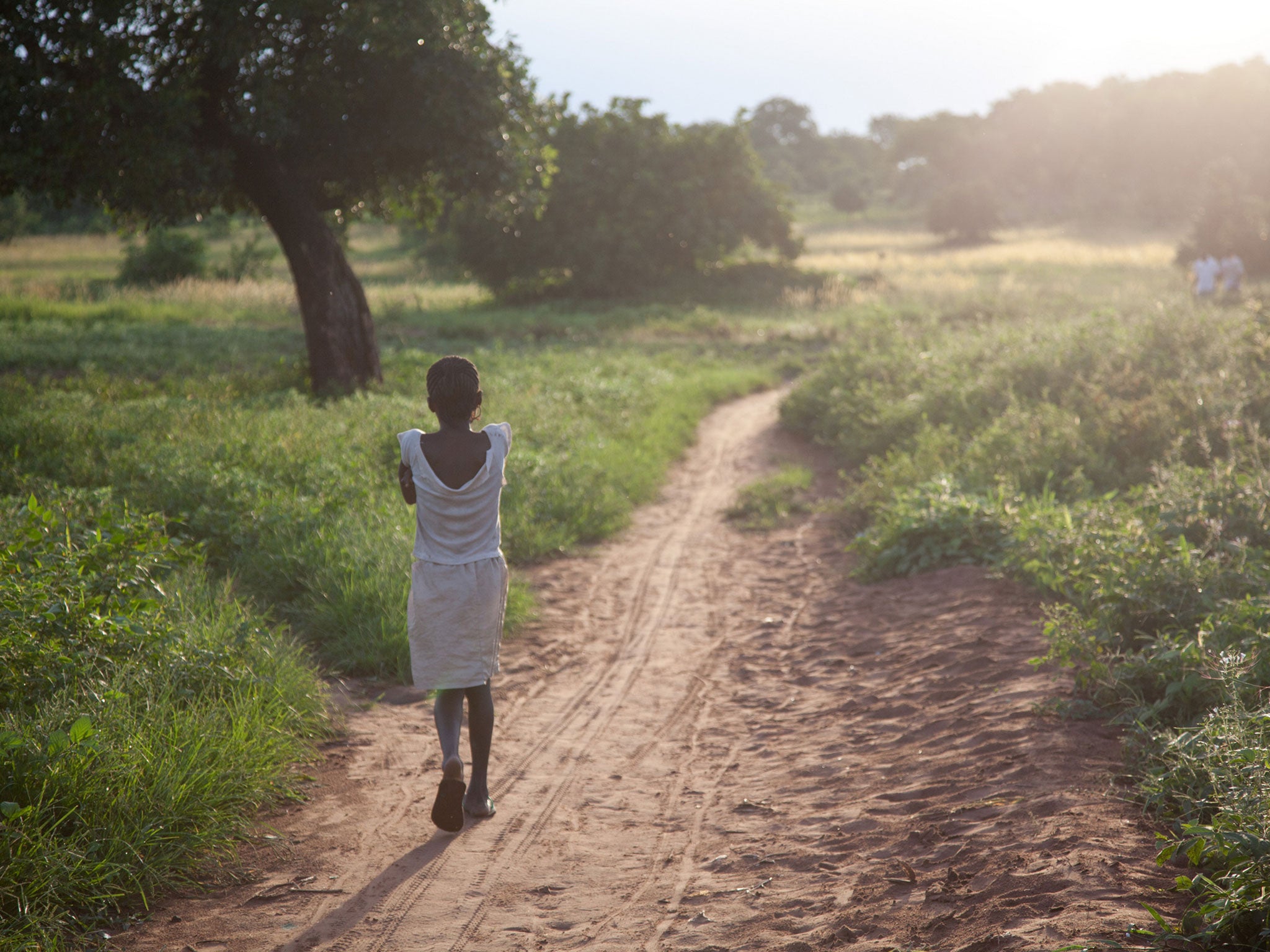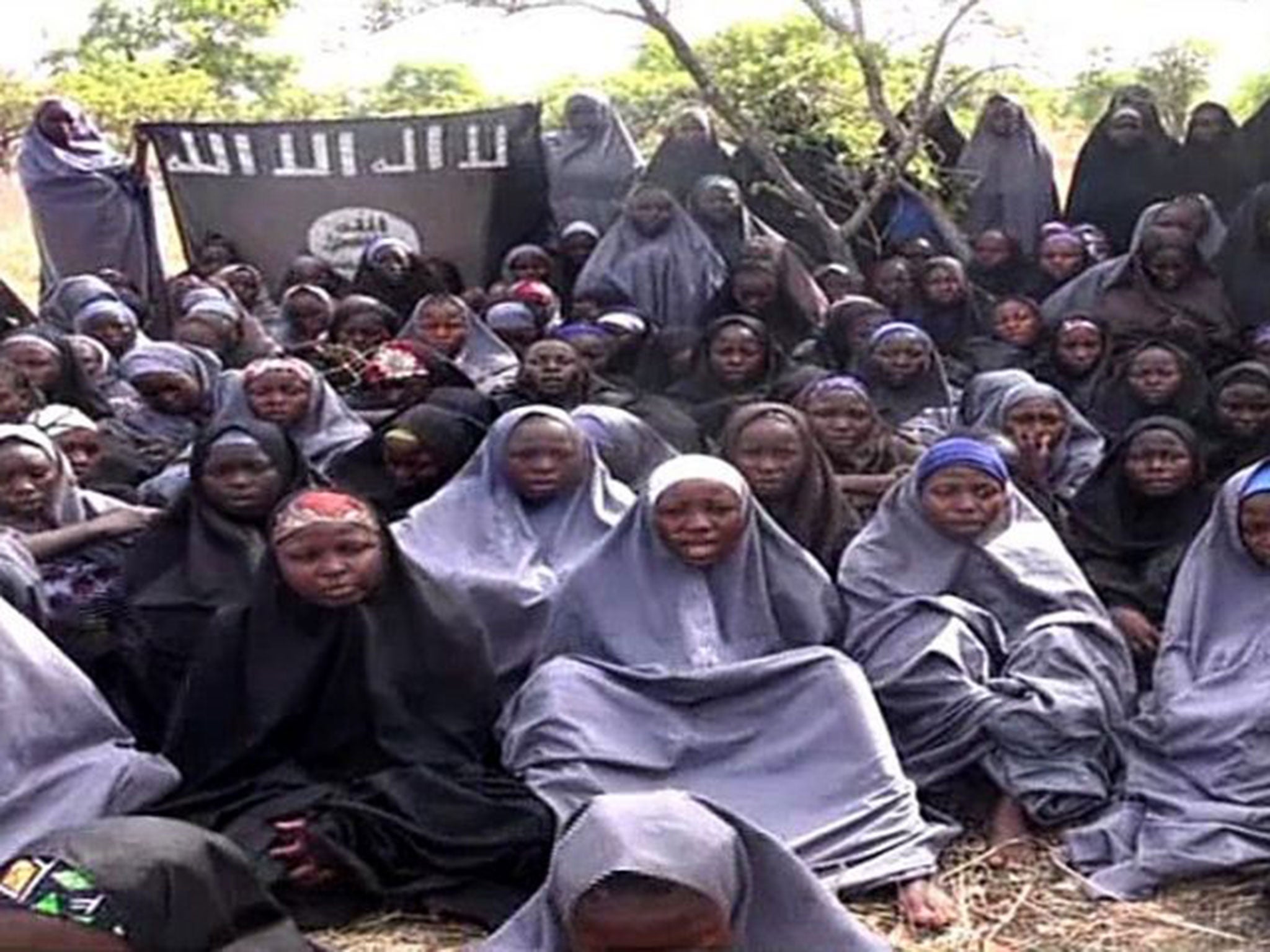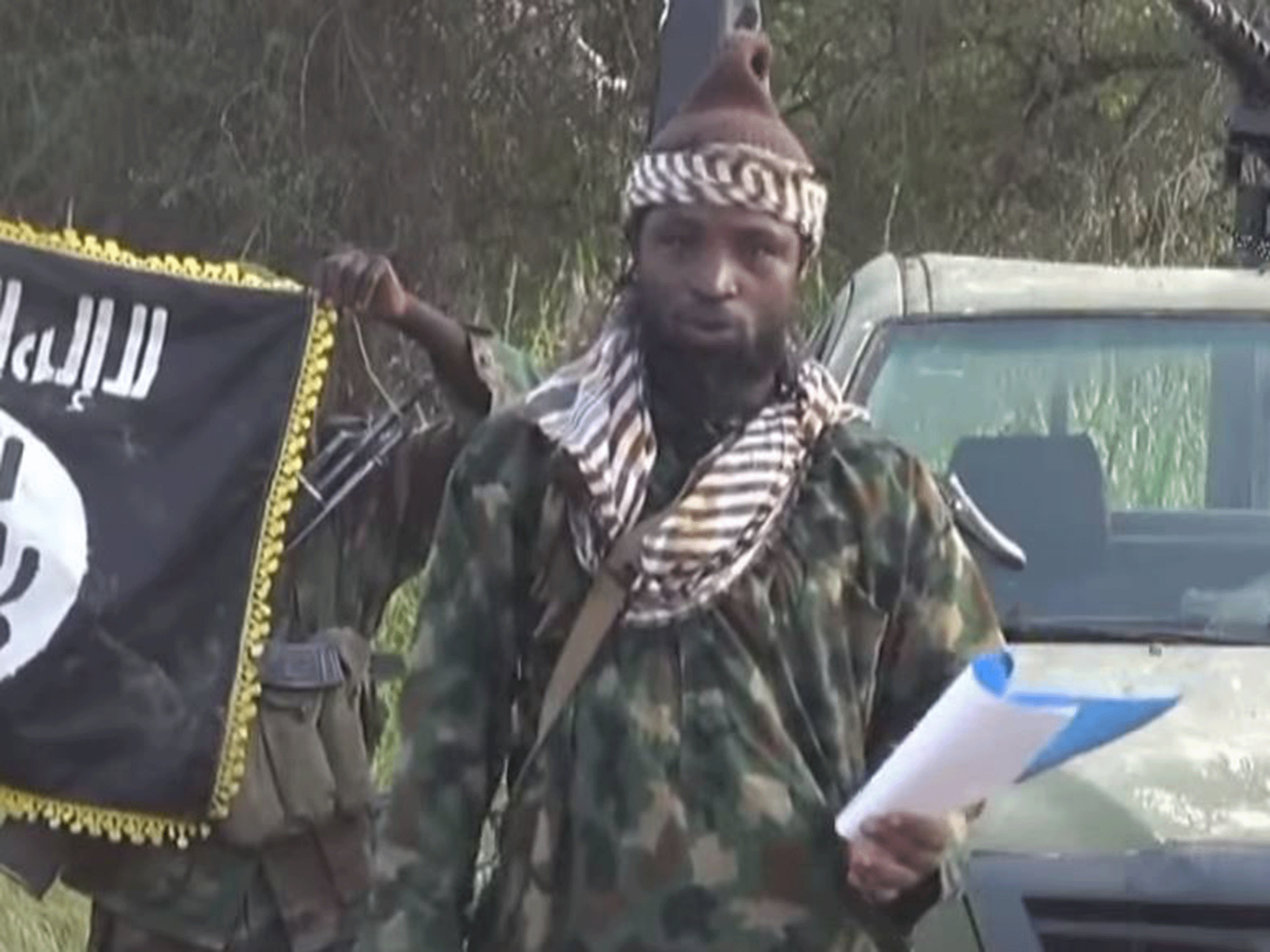The victims of rape whose children will always be ‘half a terrorist’
Exclusive: A new report explores the horrific experiences of women and girls captured by the world’s deadliest jihadist group, Boko Haram – and how it doesn’t end when they are rescued

Your support helps us to tell the story
From reproductive rights to climate change to Big Tech, The Independent is on the ground when the story is developing. Whether it's investigating the financials of Elon Musk's pro-Trump PAC or producing our latest documentary, 'The A Word', which shines a light on the American women fighting for reproductive rights, we know how important it is to parse out the facts from the messaging.
At such a critical moment in US history, we need reporters on the ground. Your donation allows us to keep sending journalists to speak to both sides of the story.
The Independent is trusted by Americans across the entire political spectrum. And unlike many other quality news outlets, we choose not to lock Americans out of our reporting and analysis with paywalls. We believe quality journalism should be available to everyone, paid for by those who can afford it.
Your support makes all the difference.Captured by jihadi terrorists, forced into sexual slavery and raped, Lucy* was pregnant when she eventually escaped Boko Haram and returned home to her husband.
But such is the stigma against the former “wives” and children of fighters, Lucy's husband told her it "won't work" having the child of a Boko Haram fighter in his household.
Lucy was forced to abort the baby – but because the procedure is not legal in Nigeria, she had to pour chemicals into her womb.
The abortion was successful - but her husband divorced her anyway.
This is the story of one of more than a dozen victims of sexual violence who have been freed or escaped capture in northeast Nigeria – and become victims all over again when they returned to their communities. Their experiences form part of a new report into the victims of Boko Haram, entitled “Bad Blood”.
Produced by International Alert and Unicef, it found that women and girls subjected to the most horrific experiences by Islamist fighters were seen as tainted, dismissed by community leaders as “Boko Haram wives”, “Sambisa women” or “Annoba” – which literally translates as “plague”.
International Alert’s Kimairis Toogood told The Independent the women like Lucy had suffered a triple trauma – their initial capture and abuse, the horror of their self-administered abortions and the subsequent rejection from their families and communities.
Boko Haram is estimated to have abducted between 500 and 2,000 women and children (boys and girls) since 2012, some of whom have been rescued and placed in government-run refugee camps following a successful Nigerian army offensive last year.
“As they return, many face marginalisation, discrimination and rejection by family and community members due to social and cultural norms related to sexual violence,” the report said.
Ms Toogood said the women and girls face a kind of “re-victimisation” when they return to their communities because of a mix of stigmas unique to northeast Nigeria.
Researchers found it was a commonly held belief in the region that Boko Haram uses witchcraft or “juju” (charms) to brainwash captives – even among government representatives.
As a result, and because of the entrenched view that a child’s DNA determines the person they will become, children born of raped captives are described as having “bad blood”.

“The women’s children are considered to carry the blood of Boko Haram,” Ms Toogood said. “They are very young now – two at most – but they will always be viewed like that, they will always be half a terrorist.”
Boko Haram likely deploys more female suicide bombers than any other terrorist group in the world, a fact which fuels distrust in those women who do manage to escape its clutches.
Every victim who returns to state-controlled areas is put through a government deradicalisation programme, which is believed to “cleanse” them of the Boko Haram “juju”.
Yet no such perceived exorcism is available to their children, who Ms Toogood said are “a constant reminder of the abuse these women had experienced”.
Even among those who tried and failed abortions, however, the women had an “extraordinary capacity” to care for the children in the face of insurmountable social pressure.

“It was really beautiful to see that they could still love these children,” Ms Toogood said. “They believed Allah would not deal them any challenge they could not handle, saying ‘he has given me the capacity’ to look after the baby.”
According to a report from the Insitute for Economics and Peace at the end of last year, Boko Haram overtook Isis to become the deadliest insurgent group in the world in 2014. The group started becoming increasingly violent and indiscriminate in its attacks in 2009, and has been using sexual violence as tactic of war since 2012.
The group now known as Boko Haram has been terrorising communities in northeast Nigeria in one form or another since the nineties, and researchers found some women had lived under its rule for so long that they no longer saw them as insurgents.
International Alert and Unicef had to terminate one interview with a woman because she was convinced the Boko Haram fighter who abused her was simply her husband – she did not self-identify as a victim.

In their report, the charities recommend the government provide better counselling and psychotherapeutic services to the group of traumatised women whose problems have really only just begun.
Ms Toogood said: “All the women we interviewed were very concerned about their future prospects. They are on the verge of destitution, with no skills, ostracised by husbands, neighbours and parents and terrified to go home because Boko Haram could come again.
“You can see that because they were victims, because they were kidnapped, raped and now have a child they do not want, as a result of that they are going to become victims again in the future.”
* Lucy not her real name. All key informant interviewees for the study retained anonymity. For the full report, click here.
Subscribe to Independent Premium to bookmark this article
Want to bookmark your favourite articles and stories to read or reference later? Start your Independent Premium subscription today.
Join our commenting forum
Join thought-provoking conversations, follow other Independent readers and see their replies
Comments